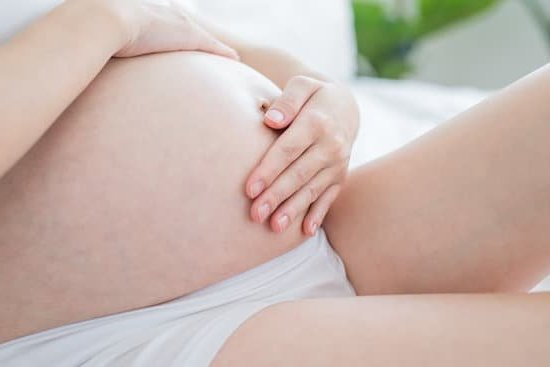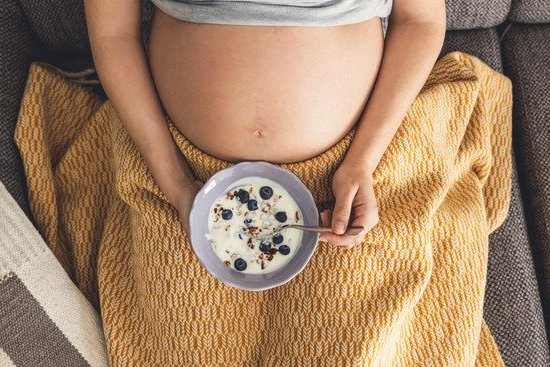is a fertility clinic located in Indianapolis, Indiana. The clinic offers a range of fertility treatments and services, including fertility exams, intrauterine insemination (IUI), in vitro fertilization (IVF), and more. Indiana Fertility Institute also has a on-site lab, which helps to ensure that patients receive the most accurate and timely results. The clinic has a team of highly skilled and experienced physicians and nurses who are dedicated to helping patients achieve their fertility goals. The team at Indiana Fertility Institute is passionate about providing patients with the highest quality of care possible.
Most Common Fertility Issues
There are a number of fertility issues that can affect both men and women. The most common fertility issues for women include:
• Ovulation disorders
• Poor egg quality
• Endometriosis
• Polycystic ovarian syndrome (PCOS)
• blocked or damaged fallopian tubes
• uterine fibroids
• early menopause
For men, the most common fertility issues include:
• low sperm count
• poor sperm motility
• poor sperm quality
• blockages in the reproductive tract
• varicocele
• retrograde ejaculation
Ovulation Disorders
One of the most common fertility issues for women is ovulation disorders. Ovulation disorders occur when a woman’s body does not produce enough eggs or does not produce eggs regularly. This can be caused by a number of factors, including:
• hormonal imbalances
• thyroid disorders
• metabolic disorders
• genetic abnormalities
• excessive exercise
• stress
• smoking
• alcohol abuse
Poor Egg Quality
Another common fertility issue for women is poor egg quality. Eggs that are of poor quality are more likely to be chromosomally abnormal and, as a result, are less likely to result in a successful pregnancy. Poor egg quality can be caused by a number of factors, including:
• age
• smoking
• alcohol abuse
• exposure to environmental toxins
• hormone imbalances
Endometriosis
Endometriosis is a condition in which tissue that normally lines the inside of the uterus grows outside of the uterus. This can cause scarring and blockages in the fallopian tubes, which can make it difficult for eggs to travel to the uterus. Endometriosis can also cause inflammation and pain in the uterus, ovaries, and surrounding tissues.
Polycystic Ovarian Syndrome (PCOS)
PCOS is a condition that affects the ovaries and is characterized by the presence of small cysts on the ovaries. PCOS can cause a number of symptoms, including:
• irregular or absent periods
• excessive hair growth on the face or body
• acne
• weight gain
• infertility
Blocked or Damaged Fallopian Tubes
One of the main causes of female infertility is blocked or damaged fallopian tubes. Fallopian tubes can be blocked or damaged by scarring from endometriosis, infections, or surgery.
Uterine Fibroids
Uterine fibroids are benign tumors that grow in the uterus. Fibroids can cause a number of symptoms, including:
• heavy menstrual bleeding
• pain during menstruation
• pain during sex
• pelvic pain
• infertility
Early Menopause
Early menopause is a condition that occurs when a woman’s ovaries stop functioning before she is 50 years old. Early menopause can be caused by a variety of factors, including:
• genetics
• chemotherapy
• radiation therapy
• autoimmune diseases
Low Sperm Count
One of the most common fertility issues for men is low sperm count. A low sperm count is defined as having fewer than 20 million sperm per milliliter of semen. Low sperm count can be caused by a number of factors, including:
• blocked or damaged sperm ducts
• infection
• hormone imbalances
• genetic abnormalities
• lifestyle factors, such as smoking, alcohol abuse, and obesity
Poor Sperm Motility
Poor sperm motility is another common fertility issue for men. Sperm motility is defined as the ability of sperm to move forward and swim effectively. Poor sperm motility can be caused by a number of factors, including:
• blocked or damaged sperm ducts
• infection
• hormone imbalances
• genetic abnormalities
• lifestyle factors, such as smoking, alcohol abuse, and obesity
Poor Sperm Quality
Poor sperm quality is another common fertility issue for men. Sperm quality is determined by a number of factors, including the number of sperm, their motility, and their morphology. Poor sperm quality can be caused by a number of factors, including:
• blocked or damaged sperm ducts
• infection
• hormone imbalances
• genetic abnormalities
• lifestyle factors, such as smoking, alcohol abuse, and obesity
Blockages in the Reproductive Tract
Blockages in the reproductive tract can be a cause of male infertility. Blockages can be caused by a variety of factors, including:
• infections
• congenital abnormalities
• scarring from surgery or injury
• tumors
Varicocele
A varicocele is a varicose vein in the scrotum. Varicoceles can cause a number of symptoms, including:
• pain
• swelling
• heaviness
• aching
• infertility
Retrograde Ejaculation
Retrograde ejaculation is a condition in which semen is ejected into the bladder rather than the urethra. This can be caused by a number of factors, including:
• diabetes
• surgery to the prostate or bladder
• certain medications
• nerve damage
Treatment for Fertility Issues
There are a number of treatments available for fertility issues. The treatment that is best for you will depend on the cause of your fertility issues. Some of the common treatments for fertility issues include:
• ovulation induction medications
• in vitro fertilization
• artificial insemination
• surgery
If you are experiencing difficulty conceiving, it is important to consult with a fertility specialist to determine the cause of your infertility and to discuss the best treatment options for you.
Low Carb Diet Fertility
When it comes to fertility, many couples are unaware of the role that diet can play. However, recent studies have shown that there is a link between fertility and low carbohydrate diets.
Low carbohydrate diets are those that restrict or eliminate carbohydrates from the diet. These diets are often high in protein and fat, and can be difficult to follow.
There are a few reasons why low carbohydrate diets may be harmful to fertility. First, carbohydrates are an important source of energy for the body. When carbohydrates are restricted, the body may not have enough energy to support reproductive function. Second, carbohydrates are important for the production of hormones such as estrogen. When carbohydrates are restricted, the body may not be able to produce enough estrogen, which can impact fertility. Finally, carbohydrates are important for the health of the reproductive organs. When carbohydrates are restricted, the organs may not be able to function properly, which can impact fertility.
Overall, it is important to have a balanced diet when trying to conceive. Low carbohydrate diets are not recommended, as they may be harmful to fertility.
Female At Home Fertility Test
Are you trying to get pregnant and want to monitor your fertility? A Female At Home Fertility Test can help. This test is a simple, at-home way to measure your fertility and ovulation. It can help you to determine when you are most fertile and when you are most likely to conceive.
The Female At Home Fertility Test measures the level of luteinizing hormone (LH) in your urine. LH is a hormone that is released by the pituitary gland in response to changes in your body’s estrogen levels. It is released in a “surge” just before ovulation. By measuring your LH levels, you can determine when you are most likely to ovulate.
To use the Female At Home Fertility Test, you will need to collect your urine in a sterile container. You can then use a dipstick or test strip to measure your LH levels. Read the instructions that come with the test for more information.
If you are trying to get pregnant, using a Female At Home Fertility Test can help you to track your fertility and increase your chances of conception.
Gynecology And Fertility Lincoln
Park
There are many different aspects to gynecology and fertility, all of which are important in helping women to maintain their reproductive health. Gynecology is the medical specialty that deals with the health of the female reproductive system, and fertility is the ability to conceive and give birth to a child.
There are many different factors that can affect a woman’s ability to conceive a child, and it is important to have a comprehensive understanding of all of them in order to maximize your chances of success. Gynecologists and fertility specialists are experts in helping couples to conceive, and they can provide you with the guidance and support you need to make the most of your fertility treatments.
If you are struggling to conceive a child, or if you are experiencing any problems with your reproductive health, please don’t hesitate to contact a gynecologist or fertility specialist. The team at Lincoln Park Gynecology and Fertility is here to help, and we would be happy to discuss your individual situation with you.

Welcome to my fertility blog. This is a space where I will be sharing my experiences as I navigate through the world of fertility treatments, as well as provide information and resources about fertility and pregnancy.





